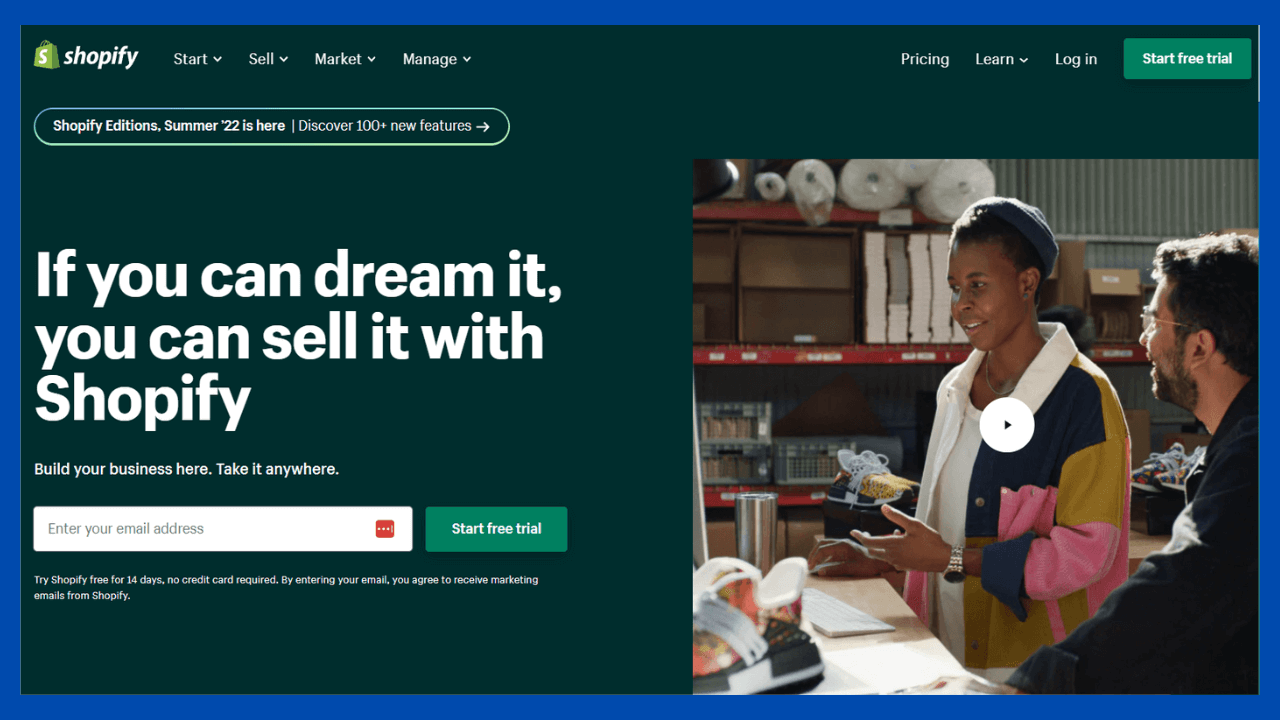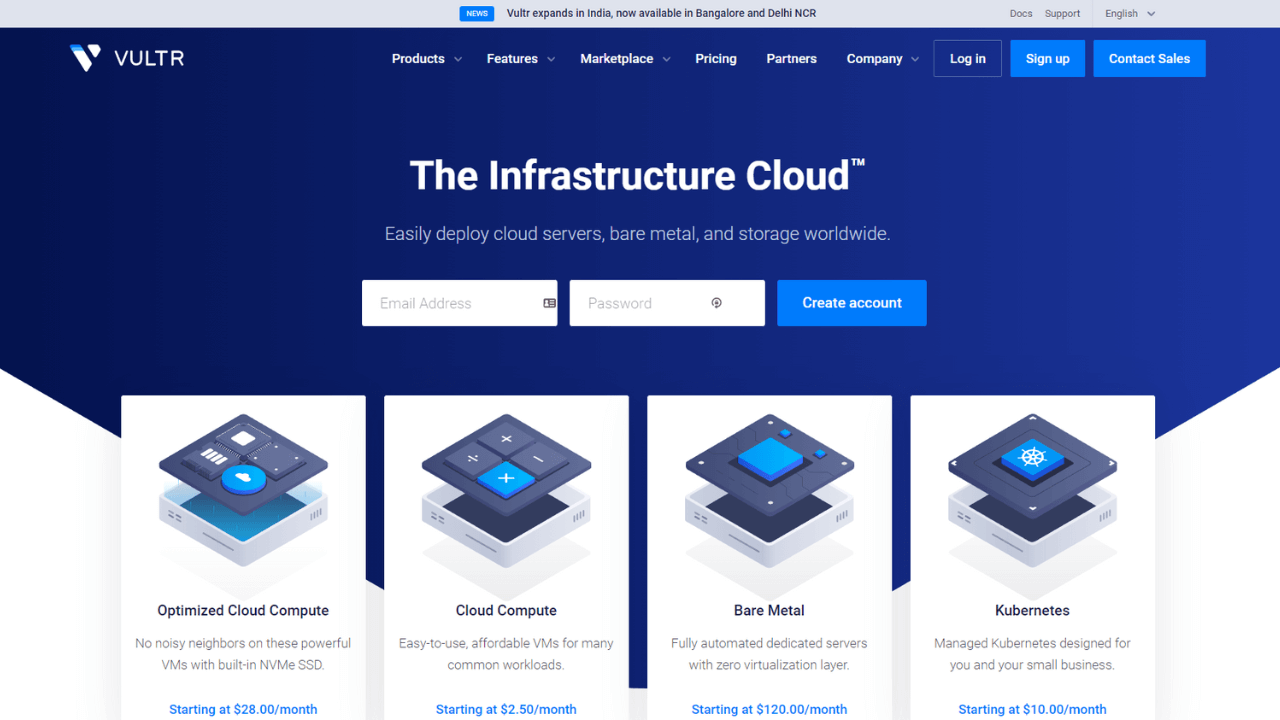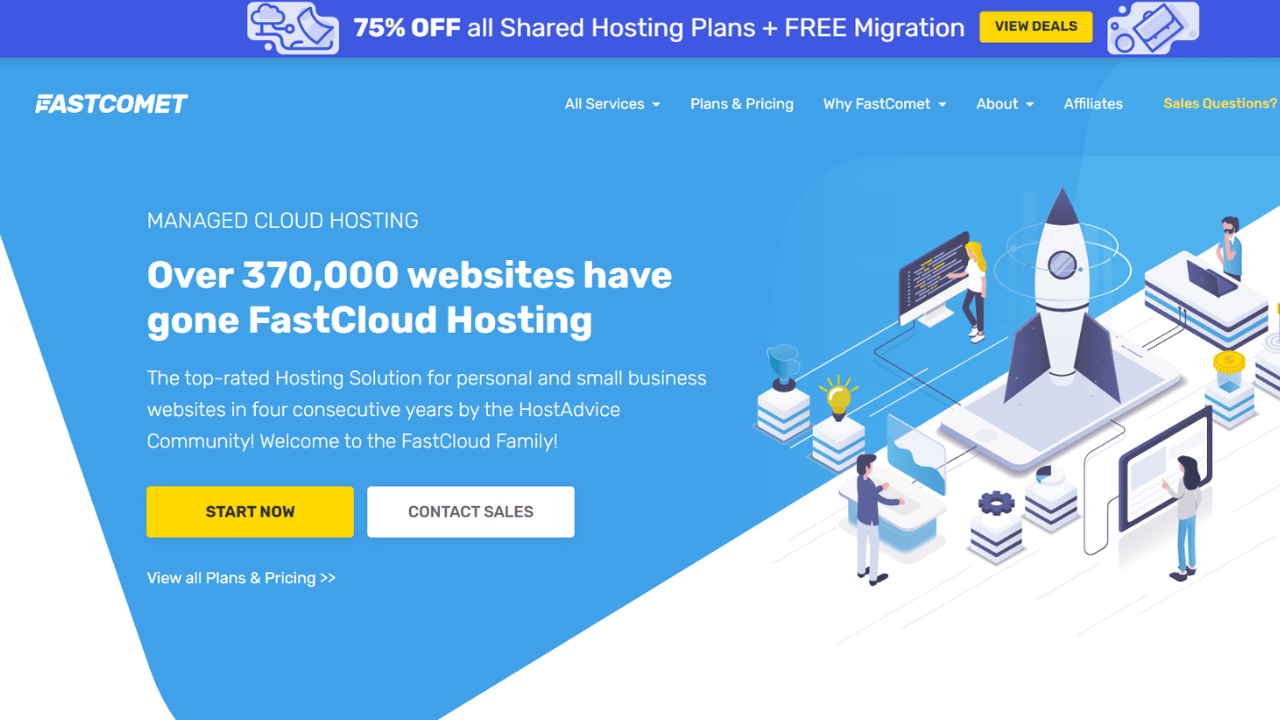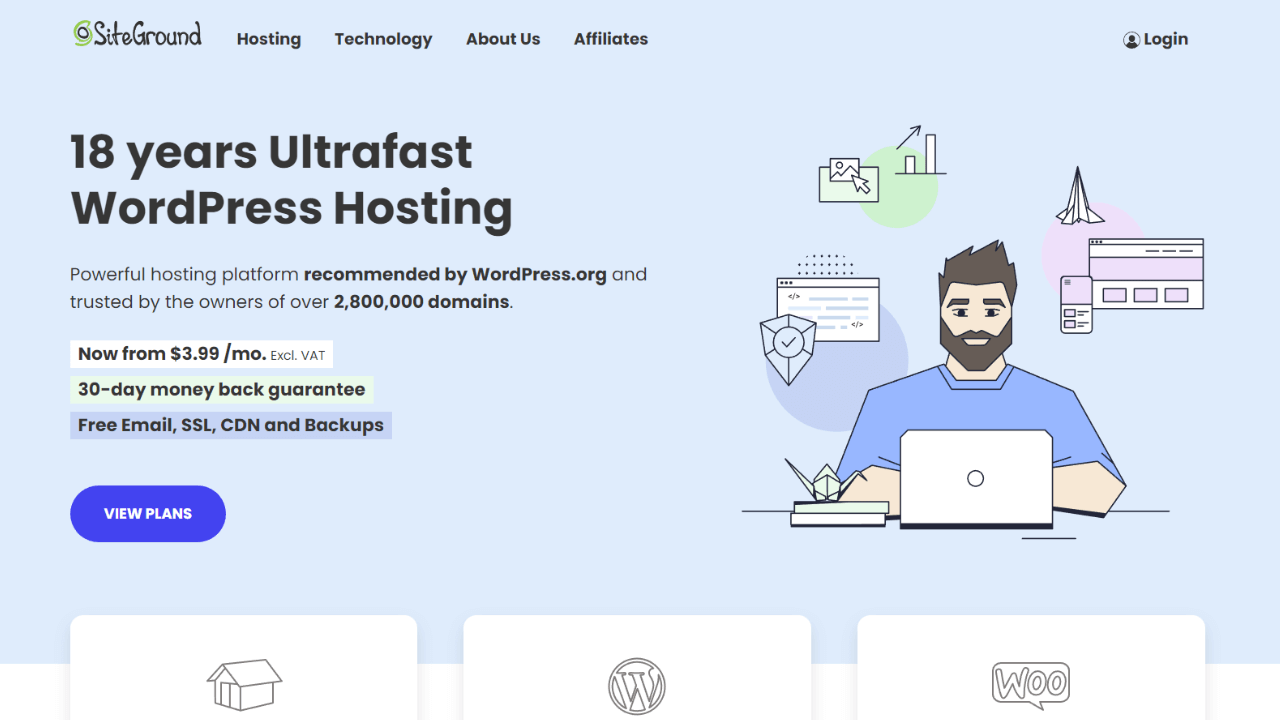Shopify is presently the most popular online store-building platform. It is a web application that enables the creation of an online store. It’s packed with tools for establishing a website in minutes, and you don’t have to bother about self-hosting or purchasing a domain name separately.
It has many templates that may be modified to match the branding needs of individual users, and it permits the sale of real and digital goods.
It’s akin to hiring a general contractor to construct your home rather than being the contractor and employing subcontractors yourself. You retain control, but allow the general contractor to use their expertise to complete the project.
Shopify Review 2022 -The Best Ecommerce Platform ? Really ?
Shopify is a hosted e-commerce platform that enables anyone to create an online store with included hosting and support. Shopify is a fully hosted, web-based platform that focuses on simplicity and use. And despite lacking some advanced features, this platform delivers the fundamentals required to support the majority of merchants.
It has all the essential elements required to open a business right out of the box. Frequently, advanced functionality requires other applications.
Shopify’s “Shopify Lite” plan, which costs $9 per month and allows you to sell an unlimited amount of products, is one of the least expensive methods to start selling online. It is essential to remember, however, that this plan does not allow you to create a fully-functional, separate internet store.
Functionality:
Shopify’s themes and design are an area in which it truly excels. Shopify offers a Theme Store where you may choose from their library of premium themes (either free or paid) across several industries (clothing, jewelry, furniture, art, etc.) in order to customize your website appropriately.
Shopify has 9 free templates (or ‘themes’) that can be used; each of these is available in two or three variations, resulting in a substantial number of distinct designs. It encourages professional theme designers to create Shopify themes.
In addition to Shopify’s scoring feature, there is an app store where you may purchase (free and paid) apps that expand your store’s capabilities.
Shopify is very adaptable and offers a wide variety of applications (Apps) to fit your demands and increase the functionality of your online store.
You can choose from over 1,400 (both free and premium) Apps to integrate into your store from their extensive App Store. The tools include accounting, customer support, inventory management, marketing, reporting, shipping, social media, and fulfillment, among others, and these applications can help automate a significant portion of your business processes.
Shopify enables you to delegate this aspect of your business to the experts and let them handle hackers, caching, compliance, and a variety of other challenges associated with maintaining an online store. It can pay bounties to security researchers to hack-proof their systems, for example.
Shopify has one of the top support teams in the market, should you want assistance. Regardless of the pricing plan you choose, the organization offers round-the-clock customer service, including phone, chat, and email assistance. Access to a substantial support system directly through Shopify’s website, including user forums, tutorials, and frequently asked questions, is another advantageous kind of assistance provided by Shopify.
Shopify reports that over 365k individuals have created online stores utilizing the platform, making it a safe bet that the firm (and hence your online store!)
Shopify Pricing Plans
There are five plans to choose from:
- ‘Shopify Lite’ – $9 per month
- ‘Basic Shopify’ – $29 per month
- ‘Shopify’ – $79 per month
- ‘Advanced Shopify’ – $299 per month
- ‘Shopify Plus’ – fees are negotiable
Important elements to be aware of (and not overlook by selecting the incorrect plan!) are:
These accounts allow you to assign different access to different team members.
Abandoned cart recovery enables you to automatically email users who nearly finished an order to convince them to continue the transaction.
Real-time carrier shipment is exclusive to Shopify’s most expensive “Advanced” plan.
Shopify Features:
- Unlimited bandwidth
- Unrestricted number of products
- Unlimited online storage
- Facebook integration
- Chat & Email Support
- One staff account (in addition to the owner’s account)
- the option to sell physical or digital products in categories and with delivery rates/methods of your choosing.
- A variety of themes from which to pick
- Processing credit cards with Shopify Payments (Stripe) or a third-party payment gateway.
- Compatibility with PayPal
- Blogging capabilities
- Import and export of customer data
- Content management (CMS) functionality
- Options for effective search engine optimization (SEO) – Adding relevant keywords to your items and website pages is simple.
- Compatibility with Mailchimp
- Discount codes
- The capability to change HTML and CSS
- A “purchase now” button that can be used to sell products on an existing blog or website.
- Integration of point-of-sale technology (more on that below)
- The possibility to create numerous staff accounts (as noted previously, the number of accounts you can create depends on your plan).
Additional Features:
- Pinterest compatibility
- 24/7 Support
- Shopify Portable
- Discount code generator
- Shopify’s free card reader
- Online retailer and Weblog
- Two employee accounts (in addition to the owner’s)
- Advanced report generator
- Real-time transport carrier
- There are fifteen employee accounts (in addition to the owner’s account).
Poin- Of Sale Applications
Shopify’s point-of-sale (POS) solutions and equipment are a noteworthy feature that distinguishes it from its competitors. These allow you to use Shopify to sell in physical locations as well as online, provided you have an iOS or Android handset.
The whole point-of-sale kit consists of a card reader, barcode scanner, cash drawer, and receipt printer; you can purchase any of these items separately or as a bundle.
There are numerous possibilities for Shopify’s point-of-sale technologies, including the ability to sell in a pop-up store, from a market stall, at an event, or even in a permanent retail outlet, while keeping your inventory and stock count automatically synchronized.
However, it is without a doubt one of the greatest eCommerce website builders on the market. You must understand that establishing an eCommerce platform is a complex process, and Shopify makes this simple.
It caters to a wide range of industries, including art & photography, clothing & fashion, jewelry & accessories, electronics, food & beverages, home & garden, furniture & household, sports & recreations, and toys & games. Shopify understands that their core strength is to allow you to build and manage a website with a secure shopping cart, and that they cannot build all the different business tools in the world for you.
Shopify Pros and Cons
Pros
- It offers a streamlined, user-friendly interface.
- It offers a wide selection of free, responsive, and appealing layouts
- The outstanding point-of-sale features distinguish Shopify from its competitors.
- There is a simple integration with PayPal accessible.
Cons
- Although adding custom fields such as text boxes and file upload options is possible, it is needlessly difficult.
- If you use a third-party payment gateway, transaction costs are unavoidable.
- The procedure of creating drop-down menus and adding items to them is more cumbersome than it should be.
- The least expensive plan ($9 ‘Lite’) does not let you to construct a fully-featured online store.
- It is impossible to modify the template’s structure without modifying the code. In addition, you may need to engage a “Shopify expert” to do any code modifications, as Shopify’s proprietary programming language (Liquid) must be handled in addition to HTML and CSS.
Conclusion: Shopify Review 2022 -The Best Ecommerce Platform? Really?
This adaptability and Shopify’s capacity to develop with your online business is one of Shopify’s distinctive features that we’ve come to love, and I hope you will too. You can begin with fewer features and tools for your online store and add more as your business expands. Shopify is one of these platforms that you should consider investing in, particularly because of their 24/7 phone and live chat assistance.
It makes much more sense to let them handle the technological side of things so that you can concentrate on other elements of your organization.
If you have any questions regarding our Shopify review or want to offer your thoughts on the platform, please let us know in the comments below.
Please bookmark this post we will be keep updating such informative articles every month.







